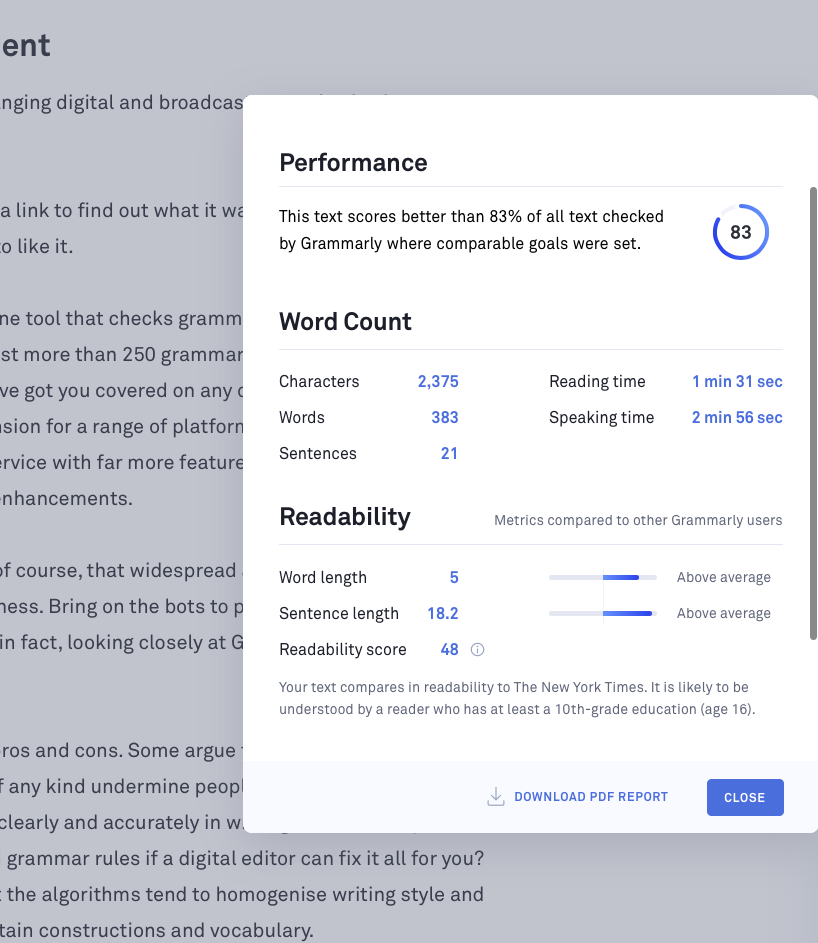
Grammarly’s wide-ranging digital and broadcast campaign is almost impossible to ignore.
In the end I followed a link to find out what it was all about. I had a feeling that I was not going to like it.
Grammarly is an online tool that checks grammar, punctuation and spelling. It reviews copy against more than 250 grammar rules and suggests improvements. They’ve got you covered on any device: you can download an app or browser extension for a range of platforms. And – of course – there’s a premium, paid-for service with far more features, including plagiarism detection and style enhancements.
My secret fear was that widespread adoption would put me and my copywriting and editing peers out of a job! But in fact, a closer look at Grammarly has changed my attitude.
Of course, there are pros and cons. Some argue that online spelling and grammar checkers of any kind undermine people’s independent ability to express themselves clearly and accurately in writing – what’s the point in learning spelling and grammar rules if a digital editor can fix it all for you? Others point out that the algorithms tend to homogenise writing style and arbitrarily favour certain constructions and vocabulary.
But on the plus side, Grammarly generally helps to make copy and everyday writing more accurate and therefore easy to read. It promotes a good standard of spelling, grammar and punctuation – I’d say that the more that people read high quality copy, the more they tend to aim for the same benchmark and absorb good practice which they can repeat. This is all good news for effective written communication in a whole range of personal, social, educational, commercial and public contexts. I’m always going to champion that cause.
And it’s not just the general public who can benefit. In some contexts, content writers find its features invaluable – Maddy Osman’s review for medium.com lists some excellent applications by professional writers.
So it turns out I’m relaxed about Grammarly, perhaps even a fan in principle! Accurate, clear writing is certainly one element of what I do: generally even more important are understanding the topic, empathy with the audience, initiative, originality, research skills, brand awareness, creativity, grasp of commercial and campaign goals, innovation, collaboration and speed of delivery.
If you’re interested, here’s what Grammarly said about my post. (I disagreed with its spelling and punctuation suggestions, which follow US protocol – I couldn’t find a way to change the check to British English, though I’m sure there must be one.)

I sometimes use readability tools to check the level of my copy is appropriate for the readership. An alternative to Grammarly is the Flesch reading ease score – find a utility to check it here along with three other readability measures.
